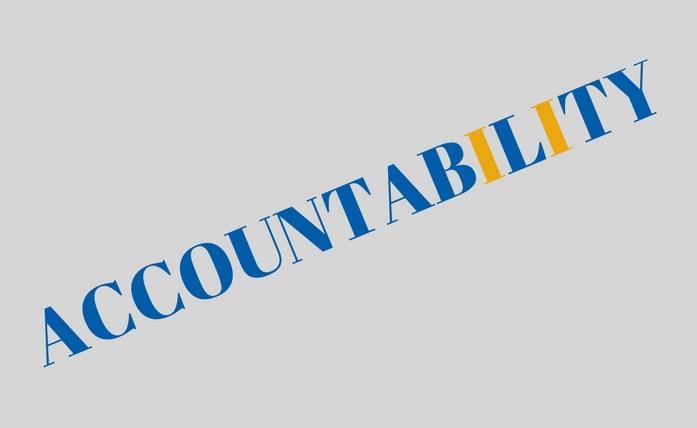
Accountability. One look in the business section of your local book store, or 3 clicks of your keyboard at the Amazon.ca website and you’ll see there’s no shortage of information about how to hold your kids/spouse/team/co-worker/manager/cat, dog or gold fish accountable.
Getting your team to be accountable is one of the hottest topics covered in my Sales Management Training Program. Some of the program participants come from companies with fat budgets designed to entice sales people to be accountable. Visions of golf trips, sandy beaches or lounging by the pool of a luxurious spa are dangled in front of employees to seduce them into being accountable for achieving their targets. Some other participants are from small companies with a zero budget for such tempting incentives, yet their people consistently do what they say they are going to do.
So, the big question is “why?”. Why are some teams more accountable than others? Do some companies simply attract and hire better people? Possibly. A more accurate answer might be to take a look at the team’s leader.
Think back to a time you worked for a manager whose mantra was “don’t do as I do, do as I say”. You’ll probably recall that most people responded by behaving opposite to the manager’s mantra; they did as the manager did, not as he said. And nothing within the company changed. New accountability programs were rolled out, but were quickly forgotten or cast aside. Consequences of not being accountable were not followed through on, or perhaps were too weak to have an impact on people. Why should people change, try new things or break an existing, unproductive behaviour pattern if their leader wasn’t willing to do the same.
Is it possible then, that in order for a team to be accountable, the accountability needs to start with the leader? As a leader, are you accountable to your team and to yourself?
Let’s take this one step at a time. What exactly does it mean to be accountable to your team? Most people will readily say that a team needs to be accountable to its leader; they need to complete the desired activities in the desired time with the desired outcome. But what happens when the leader fails to be accountable to the team? Perhaps the leader isn’t available or doesn’t have the time to coach team members on how to improve. Or perhaps the leader fails to follow-through on commitments or promises to the team. By not being accountable to the team, the leader is, in effect, sabotaging the team’s success.
But what does it mean to be accountable to yourself? Think about a time when you made a commitment to do something, (i.e. exercise, break a bad habit, establish a healthy habit), but were unsuccessful. How did you feel? When that happens to me, I end up with a rock in the pit of my stomach. From the conversations I’ve had with friends and business associates, many of us feel the same when we are not accountable to ourselves.
Leader’s who hold themselves accountable first, before they expect their team to be accountable earn stronger buy-in from their team. Sharing a personal goal with your team will likely make you feel highly vulnerable. Visions of “what ifs” dance in front of us, taunting us that we might not achieve our goal. But in fact, quite the opposite is true. Sharing your goals with your team humanizes you. It creates a culture of trust and accountability between you and your team.
Strong teams are successful because they are accountable to themselves and to their leader. Great leaders know that to be successful, they must be accountable to themselves and to their team. There may not be an “I” in the word team, but as a leader of the team, I am accountable to them.

